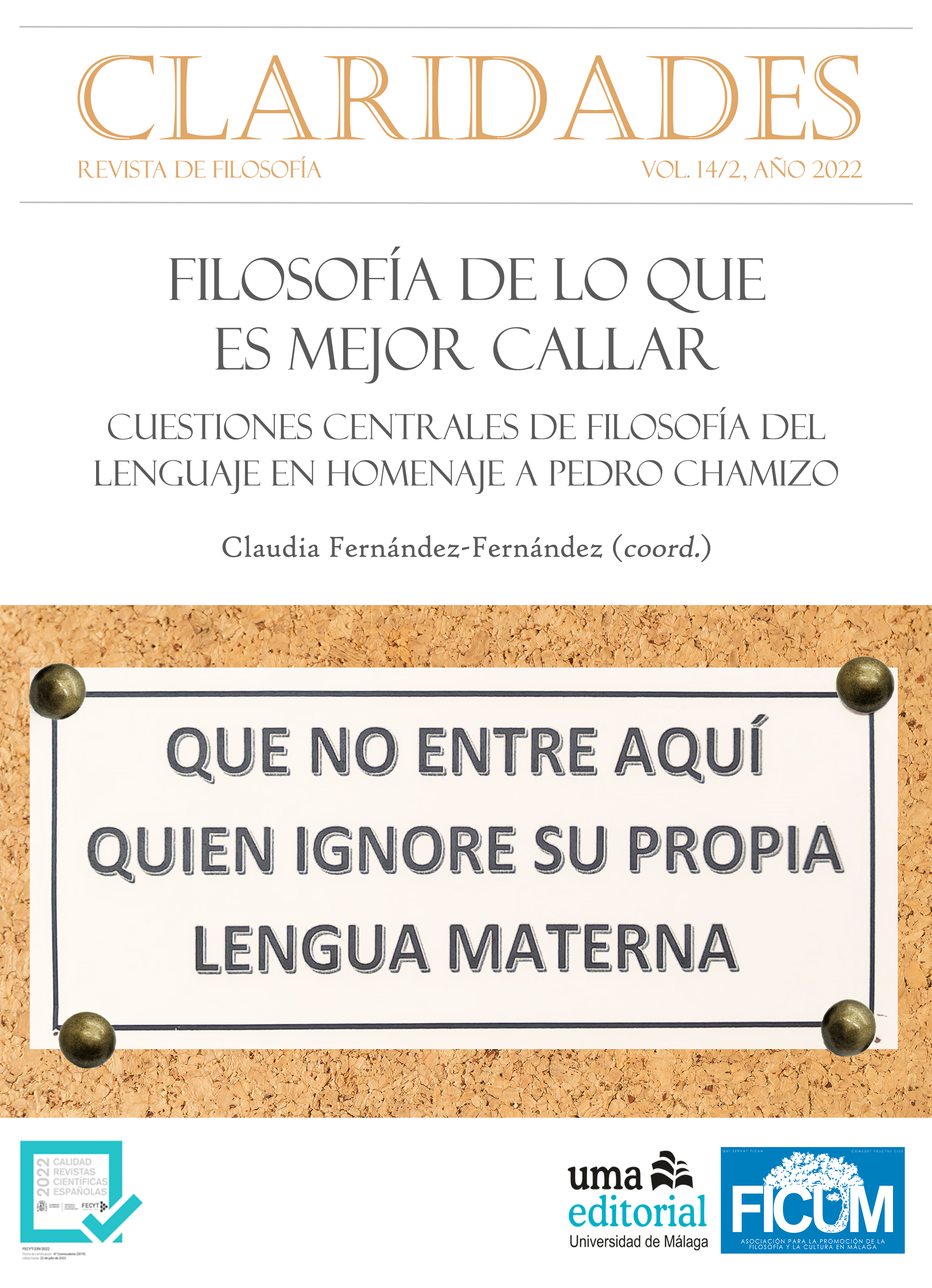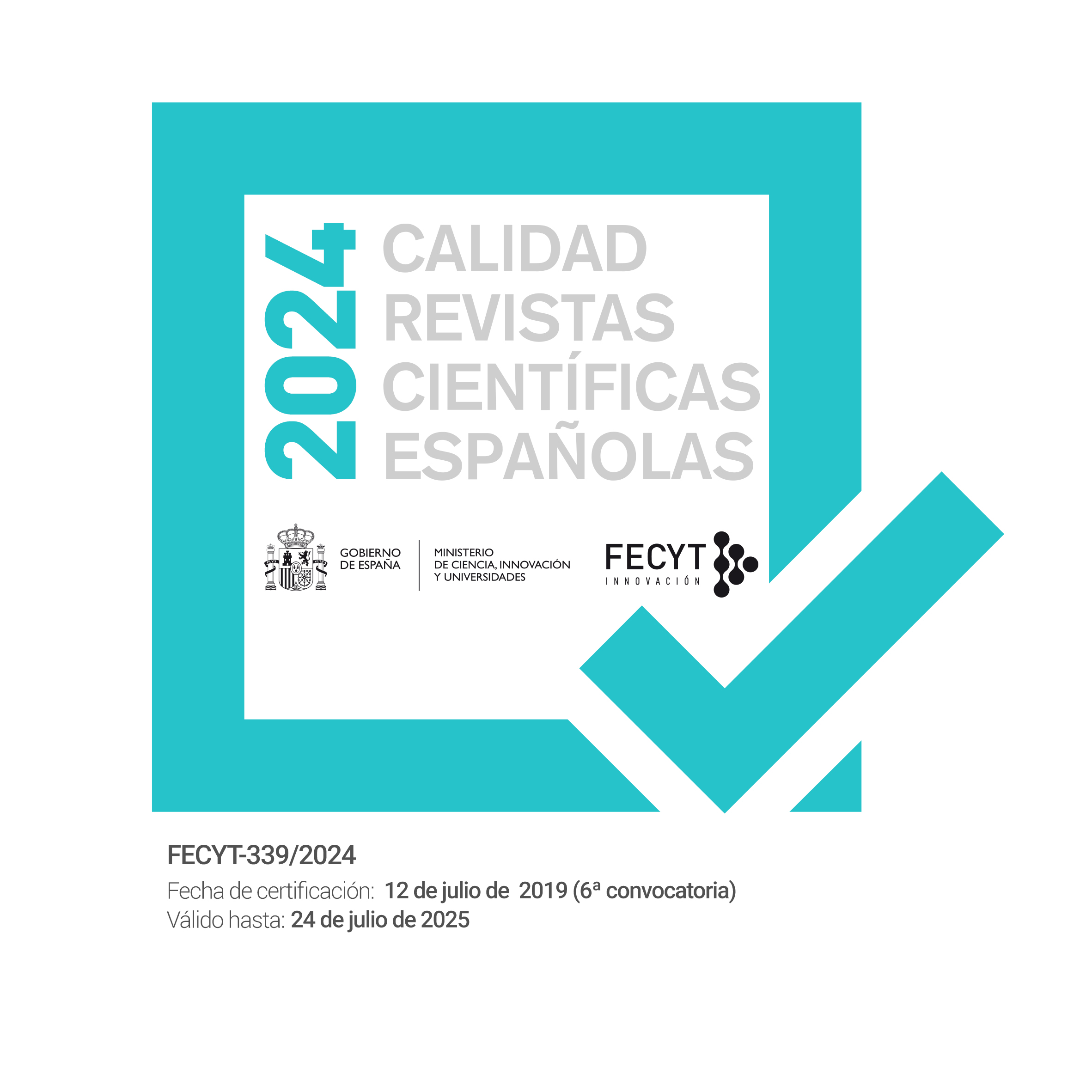What we must pass over in silence
Silence and the Mystical for Wittgenstein and Russell
DOI:
https://doi.org/10.24310/Claridadescrf.v14i2.13699Keywords:
War, Mysticism, Ethics, Religious EducationAbstract
Ludwig Wittgenstein’s and Bertrand Russell’s views on mysticism show their intense interest in this subject and how they explored its nature and possibilities. Wittgenstein, who had abandoned his Catholic faith as a teenager, became a religious searcher, which began from his fears of the terrors of war. He had enlisted as a soldier to fight for Austro-Hungary during which his terror of war led him to pray to God for refuge. The fortuitous discovery of Leo Tolstoy’s book, The Gospel in Brief, opened Wittgenstein’s mind to the importance of Jesus and led him to value Christianity once more. Russell’s interest in mysticism appears in a published article written in 1914 and seems to have been one of curiosity, rather than religious. From a young age, Russell became extremely interested in mathematics and he came to perceive that this subject might be called mathematical mysticism. In both cases, Wittgenstein and Russell shared a keen interest in mysticism, with Wittgenstein concluding in his Tractatus that the mystical was transcendent while Russell chose to examine how mysticism and empiricism might complement each other.
Downloads
Metrics
Publication Facts
Reviewer profiles N/A
Author statements
Indexed in
-
—
- Academic society
- N/A
- Publisher
- Asociación para la promoción de la filosofía y la cultura en Málaga (FICUM) y UMAEditorial
References
Atkinson, J. R. (2011): The Mystical in Wittgenstein’s Early Writings, New York and London: Routeldge.
Agustín de Hipona (1960): The Confessions, trans. with an Introduction and Notes by John K. Ryan, New York: An Image book by Doubleday.
Engelmann, P. (1967). Letters from Ludwig Wittgenstein with a Memoir, Oxford: Blackwell.
James, W. (1928): The Varieties of Religious Experience, London and New York: Longmans: Green and Company.
McGuinness, B. (1988): Wittgenstein: A Life: Young Ludwig, 1889-1921, London: Duckworth.
Plato, Phaedo trans. by R. Hackforth, FBA, Cambridge and New York: Cambridge University Press.
Quinn, P. (2015): Wittgenstein on Thinking, Learning and Teaching Bern, Oxford: Peter Lang.
Rhees, R. ed. (1984): Recollections of Wittgenstein, Oxford and New York: Oxford University Press.
Russell, B. (1958): Portraits from Memory and other essays, London: George Allen and Unwin.
Russell, B. (1959): My Philosophical Development, New York: Simon and Schuster.
Russell, B. (2004): History of Western Philosophy, London: Taylor and Francis Ltd., Routledge.
Russell, B. (1998): Mysticism and Logic and other essays, London: Rowan and Littlefield.
Tolstoy, L. (1997): The Gospel in Brief, trans. by Isabel Hapgood, ed. with preface by F.A. Flowers, Lincoln and London: University of Nebraska.
Wittgenstein, L. (1961): Tractatus Logico-Philosophicus trans. by Brian McGuinness and F.F. Pears, London: Routlesdge & Kegan Paul.
Wittgenstein, L. (1975): On Certainty, G.E.M. Anscombe and G.H. von Wright eds., trans. by Denis Paul and G.E.M. Anscombe, Oxford: Blackwell.
Wittgenstein, L. (1978): Remarks on the Foundations of |Mathematics, G.E.M. Anscombe, Rush Rhees and G.H.von Wright, eds., Oxford: Blackwell.
Wittgenstein, L. (1998): Culture and Value, revised and ed. by G.H. von Wright in collaboration with Heikke Nyman, trans. by Peter Winch, Oxford: Blackwell.
Wittgenstein, L. (2001): Philosophical Investigation, P.M.S. Hacker and Joachim Schultz, eds. Revised 4the edn., London: Wiley-Blackwell.
Wittgenstein, L. (2004): Notebooks: 1914-1916, G.H von Wright and G.E.M. Anscombe, Oxford: Blackwell.
Wittgenstein, L. (2014): Lecture on Ethics, Oxford: John Wiley and Sons.
Downloads
Published
How to Cite
Issue
Section
License
Esta revista provee acceso libre inmediato a su contenido bajo el principio de hacer disponible gratuitamente la investigación al público. Todos los contenidos publicados en Claridades. Revista de Filosofía, están sujetos a la licencia Creative Commons Reconocimento-NoComercia-Compartirigual 4.0 cuyo texto completo puede consultar en <http://creativecommons.org/licenses/by-nc-sa/4.0>
Es responsabilidad de los autores/as obtener los permisos necesarios de las imágenes que están sujetas a derechos de autor.
Los autores/as cuyas contribuciones sean aceptadas para su publicación en esta revista conservarán el derecho no exclusivo de utilizar sus
contribuciones con fines académicos, de investigación y educativos, incluyendo el auto-archivo o depósito en repositorios de acceso abierto de cualquier tipo.
La edición electrónica de esta revista esta editada por la Editorial de la Universidad de Málaga (UmaEditorial), siendo necesario citar la procedencia en cualquier reproducción parcial o total.

















6.png)
